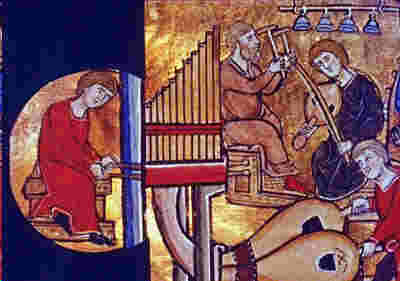

|
| |||||||||||||||||||||||||||||||||||||||||||||||||||||||
|
|||||||||||||||||||||||||||||||||||||||||||||||||||||||
|
| |||||||||||||||||||||||||||||||||||||||||||||||||||||||

Welcome to music of the second world war era—Page 3
on the home frontWoman volunteered for military service. The Army formed the Woman's Army Auxiliary Corps (WAAC), which later became the WACs, and the Navy formed the WAVES. A unit of woman pilots ferried airplanes across the US and overseas. Red Cross volunteers not only drove ambulances, wrapped bandages, and poured coffee at home as they had in previous wars; some served close behind the front lines and in jungle hell holes. Many of these services were hazardous and a number of these unsung heroes and heroines died serving their country.
Men with sea experience who were too old for active duty volunteered for the Merchant Marine service. Supposedly non-combatants, they trained at five inch naval guns mounted on their prows. But what good were five inch guns against submerged U-boats and torpedoes? Underwater explosions blew them into freezing Arctic seas where, if they didn't burn to death in flaming oil, they froze in ice cold waters and drowned like rats in minutes. Convoys made little difference. Hold after hold crammed with Lend Lease cargo bound for Murmansk and Vladivostok never arrived. Civilian construction workers volunteered for Sea Bee battalions and were accepted even though many were overage and unfit for active duty. Throughout they war they built airstrips, docks, and bridges, most of them on faraway, isolated Pacific islands. Anonymous heroes in dungarees, they wrangled a bulldozer or laid landing strips in mud, a steering lever in one hand and a rifle in the other, all the while searching for the glint of a sniper rifle sparkling in the shadows of a palm tree. Blackouts and air raid drills became common in certain sections of the country. German U-boats torpedoed American freighters off the New York coast and oil tankers off the Florida and Texas coasts. In one incident, a German submarine landed eight saboteurs on American soil who were captured and put to death. There were Japanese bombing scares on the West Coast.
Japanese-American citizens, especially those in California, were moved to American-style concentration camps, "out of harm's way." Letters were censored. People grabbed at the latest newspapers and frowned, puzzled, scoffed, or laughed at what they saw there. The newly formed Office of Price Administration (OPA) instituted price controls; the Rationing Board issued food stamps. Shortages and rationing produced a black market. Gasoline A-Cards and meat rationing and sugar rationing were for losers but there were a lot of losers. People collected rendered fat for explosives in tin cans and donated old newspapers and scrap metal in "war drives." They kept Victory Gardens in back yards or on rooftops and ate the food they grew. "Double features" showed two dramatic pictures, at least one of which was about the boys at war or spies at home or soldiers stomping at the USO or War Bond rallies. Thrown in for good measure were a newsreel, a propaganda flick, a short subject, a comedy one-reeler, which, if you were lucky, was one of the Three Stooges, and a one-reeler weekly serial, which, if you were lucky, was an episode of Flash Gordon. The bill changed twice a week. On the Home Front, Franklin Roosevelt's friendly, frank, and open Fireside Chats informed, calmed, reassured, and invigorated the nation. Blue stars, signifying that a man of the house was in uniform, started to appear on small flags hung in neighborhood windows. Soon gold stars started to appear, signifying a death. Some households hung these flags in their windows for years after hostilities ended. Factories that met their production goals proudly displayed blue flags bearing the coveted white letter E, for Efficiency. ETAF Recommends...Coming.
Search this web site with Electricka's Search Tool:
tap or click here
Electricka's Theme Products
Shop At Cafe Press
This web site and
its contents are copyrighted by
Decision Consulting Incorporated (DCI).
All rights reserved. |
| ||||||||||||||||||||||||||||||||||||||||||||||||||||||